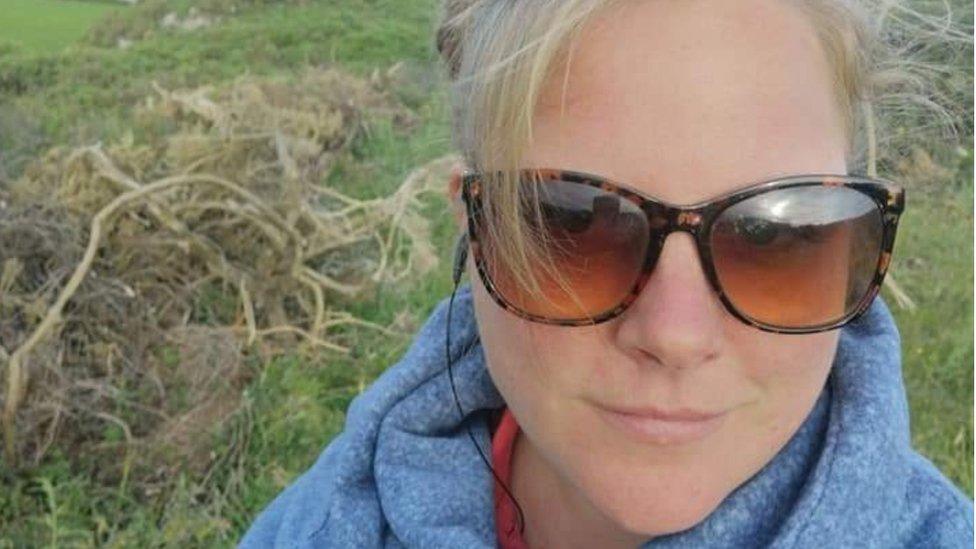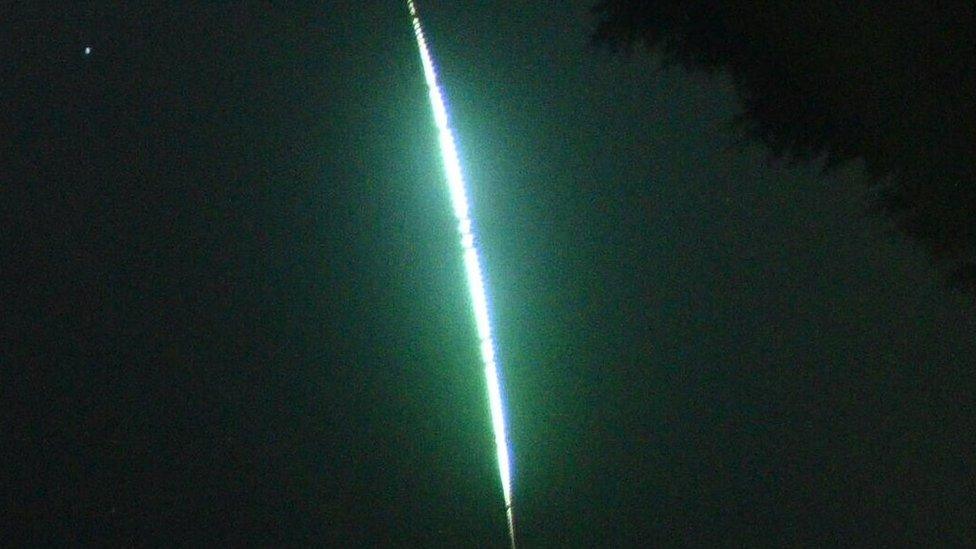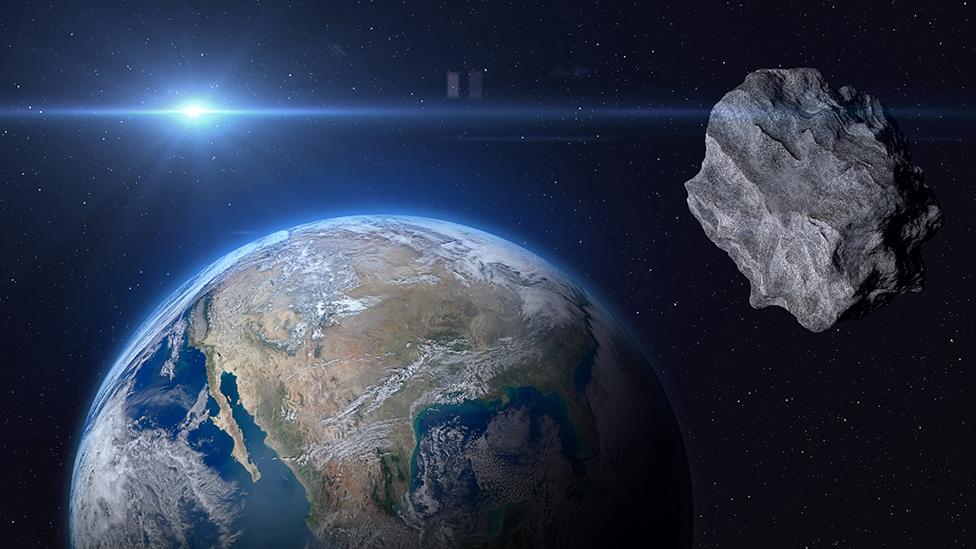Meteoroid seen lighting up Gower sky from 270 miles away
- Published
The meteoroid was caught on camera as it created a fireball effect
A meteoroid believed to have entered the Earth's atmosphere above northern France has been seen lighting up the sky hundreds of miles away in Wales.
Sar2667, just 1m (3ft) long, illuminated parts of the night sky shortly before 03:00 GMT on Monday.
Despite its small size, it was caught on CCTV from Gower, Swansea, about 270 miles (440km) away.
Emma Oliver, who caught the footage at her farm in Slade near Oxwich, described it as "pretty amazing".
After hearing about the meteoroid on the news, Ms Oliver hurried back to see if her camera had picked it up.
"I saw online that there had been an asteroid that had been seen over England," the 35-year-old explained.
"It said 03:00 so I thought I'd go and have a little look on the cameras and I saw this huge flash - it frightened me to watch it at first.
"I thought it might look a bit like a shooting star, but I wasn't expecting to see anything like that at all."
It is just the seventh time that such a strike has been accurately forecast.
The European Space Agency, which first alerted stargazers to Sar2667, said it was expected to "safely strike" the earth's atmosphere near to the French city of Rouen.
It later tweeted that it was "a sign of the rapid advancements in global asteroid detection capabilities".

Emma Oliver caught the asteroid on CCTV from her farm in Gower, Swansea
"The fact that it was so visible over Gower, I think local people were pretty impressed as well," Ms Oliver said.
"I think if I'd seen it at the time I would have run. I'd have been taking cover under a shed I think."
While meteoroids entering the Earth's atmosphere are difficult to forecast, technological advances are making them easier to anticipate.
The most recent which was correctly predicted was seen in the sky above Ontario, Canada, in November.
Ms Oliver said she would definitely continue to check her cameras for future discoveries.
"As long as it says a time on the news, I'll flick back and have a little look to see what's there," she said.
"I don't think I'll be moving the direction of the camera, that's for sure."
- Published19 May 2022

- Published27 January 2023

- Published26 September 2022